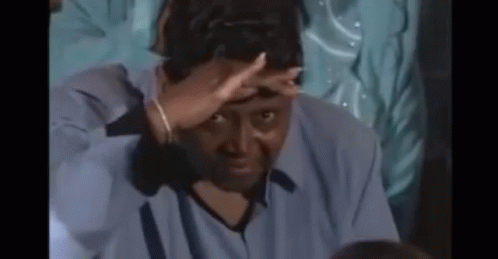History: You Need to See How Hope Has Worked
“In those five decades, antislavery went from being radical to being the status quo,” says historian Rebecca Solnit. But abolition didn’t change hearts. It changed laws. And even after slavery ended, millions still gnawed at the idea of Black freedom. One man can say slavery is wrong; a million more can still resent the enslaved for walking free.
If we’re to be hopeful, we need a clear view of progress—and its limitations.
Author Baer notes that looking at history—women’s suffrage, LGBTQ+ rights, slavery—can inspire belief in social change. But for many, the arc of justice still feels like an abstract promise. A luxury.
Just ask the groups who are still fighting:
- Native peoples pushed off their lands and erased
- Africans enslaved, African Americans lynched and criminalized
- Women denied autonomy, exploited, trafficked
- Japanese interned and atom-bombed
- Queer communities brutalized
- Muslims and Jews othered
- Arabs stereotyped and surveilled
Despite progress, “White men,” collectively, have faced the least systemic oppression—while shaping most of the policies meant to undo it. Even today, the power to grant or revoke justice still often sits in their hands. Hope hasn’t changed that. Legislation can be overturned. Minds don’t evolve on ballots.
On paper, everything looks good. But the mental of these people is what we have yet to change—and hope can't do that.
The Illusion of Progress
Harvard cognitive scientist Steven Pinker points to stats: global poverty, child mortality, and inequality are down; education, democracy, and vaccines are up. That’s hope-worthy, right?
But take a closer look.
Poverty under $2.15/day is "extreme," but moving from $2.15 to $3 doesn’t mean someone escapes suffering. Child mortality may drop, but growing up in poverty still stunts opportunity. Pinker applauds India and China’s growth, but doesn’t dwell on the air thick with pollution, or the human toll of fossil-fueled capitalism.
Economic progress without wealth redistribution still means the rich control too much, and the poor fight for what’s left. Meanwhile, automation creeps in to replace workers, and we keep building a world where robots serve no one because no one has money to buy what they make.
Even CEOs answer to legacy money. The caste system is global. And hope—without power redistribution—is just a pacifier.
Where Ships Go to Die, Workers Risk Everything | National Geographic
Psychology: Hope Can Help, But Only If You Move
Here’s where hope actually earns its place: psychology.
University of Kansas psychologist C.R. Snyder defines hope as a mix of goals, personal agency, and problem-solving. The hopeful don’t just wish—they plan. They pivot. They invest in multiple dreams. And they act.
Think: athletes, entrepreneurs, students. Their hope doesn’t float—it drives. It's not vibes. It's discipline. The dream alone doesn’t carry them—the preparation does.
Hope, then, isn't the spark. It's the co-pilot. Useful, powerful—but only when paired with action.
Hope Is Oppression
Hope was the Bible handed to enslaved people — promising salvation after death, while they labored in chains.
Hope is women in 2025 still fighting to make 80 cents to a man’s dollar.
Hope is a gay couple in Lakewood, Colorado denied a wedding cake because of who they love.
Hope is white women who marched for the vote in the 1920s — voting overwhelmingly for their savior oppressor year after year.
We are systematically conditioned to believe in hope — not because it sets us free, but because it keeps us still and obedient.
It’s what sitcoms like Family Matters, Full House, The Office, and The Flash sell in 22-minute episodes.
It’s what Transformers, Castaway, and Jaws teach us: if you try hard enough, it’ll all work out.
Even fantasy — Harry Potter, Lord of the Rings, graphic novels — promises that darkness is always defeated.
But real life? It rarely end in victory. Everyone checks out eventually. And too many of us say farewell, still clinging to hope — hope that what we’ve left behind will speak for who we were and what we’ve done. Hope is so passive, even the dead can cling onto it.
Search for your truth

The truth will always always be hidden form you. How much of time will you invest searching for it?
Name a movie, book, or TV show where good loses — where hope fails — and that’s the end.
Why don’t those stories get told?
Compare The Hunger Games and 1984. Both dystopias. Both resistance stories.
But only one tells the truth: The Hunger Games says if the system rises up, we’ll mobilize, unionize, fight back and win.
1984 says we’ll fight and lose.
Look around. Which feels more honest?
The Hunger Games — not because it’s more true, but because it’s more comfortable.
It’s the optimism bias. It whispers, "You’ll be fine. You don’t have to act. Just wait, and it’ll work out."
Hope you'll get the raise — while you stay silent and ignored at work.
Hope you'll find love — while holding impossible standards.
Hope you'll stay healthy — while binging ultra-processed food on the couch and never exercising.
Hope you’ll hit the lotto — without building any financial stability for yourself.
Hope.
And then? You jump back into the system. Quiet. Obedient.
Hopeful.
Hope, without effort, without truth, without action — is the leash you place around your neck, while you wait at the door whimpering for permission to take a shit outside.
I hope someone cleans this up.
In part 3, I'll discuss how to fuse hope with relative tangible change.

![Re: What Good Is Hope? — A Brief History of Hope [Is Oppression] (Pt. 2)](https://images.unsplash.com/photo-1562669537-df0b1f9eb57a?crop=entropy&cs=tinysrgb&fit=max&fm=jpg&ixid=M3wxMTc3M3wwfDF8c2VhcmNofDN8fHJlYWRpbmclMjBoaXN0b3J5fGVufDB8fHx8MTc1MTUwNTE0Mnww&ixlib=rb-4.1.0&q=80&w=960)



